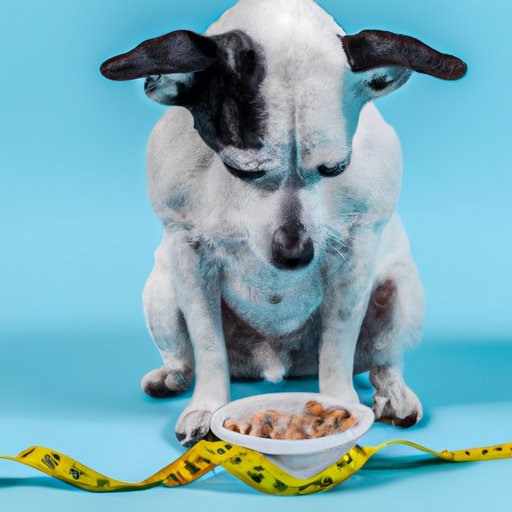
How to Get Your Dog to Gain Weight: A Complete Guide
It’s not uncommon for dog owners to worry when their furry friend is not putting on enough weight. Whether due to illness, a picky appetite, or simply a fast metabolism, some dogs may need help gaining weight. The good news is that there are plenty of solutions that can be easily incorporated into your dog’s routine. In this article, we’ll discuss various ways to help your dog gain weight in a healthy manner.
Feed Them Calorie-Dense Foods
If your dog is underweight, you likely need to increase their calorie intake. One of the easiest ways to do so is to switch to calorie-dense dog foods. These foods are generally formulated for weight gain and contain high levels of fat and protein.
When looking for calorie-dense dog foods, you should opt for formulas that contain at least 30% protein and 20% fat. Additionally, choose foods that are made with natural ingredients and avoid those with artificial additives and preservatives.
Some examples of calorie-dense foods include Merrick Classic Grain-Free Wet Dog Food, which contains 9.5 ounces of protein per can, and Purina Pro Plan Sport Performance, which contains 30% protein and 20% fat.
Offer Small, Frequent Meals
Feeding your dog multiple small meals throughout the day can help stimulate their appetite and promote weight gain. Rather than feeding your dog two or three larger meals, try offering smaller portions more regularly. You may even want to consider leaving your dog’s food out throughout the day so they can eat at their own pace.
If you’re worried about leaving food out, try using a timed feeder that releases small amounts of food throughout the day. This can also help get your dog into a consistent eating routine.
Add Healthy Supplements
Another way to boost your dog’s calorie and nutrient intake is to add healthy supplements to their meals. This can include boiled chicken, eggs, sweet potato, or pumpkin. These foods are high in calories and nutrients and can help your dog gain weight in a healthy way.
When adding supplements to your dog’s meals, it’s important to avoid overfeeding. These foods should serve as a complement to your dog’s main meal, not as a replacement. As a general rule, supplements should make up no more than 10% of your dog’s overall diet.
Provide Regular Exercise
Regular exercise is essential for a dog’s overall health, but it can also help them gain weight. Low-intensity exercises such as brisk walks or playing fetch can help your dog build muscle and maintain a healthy appetite. Additionally, exercise can also help improve your dog’s mental health and reduce their stress levels.
Avoid High-Intensity Activities
While exercise is important, it’s crucial to avoid high-intensity activities, especially for older or overweight dogs. Activities such as running or jumping can burn off the extra calories that your dog needs to gain weight. Instead, opt for gentle exercises that won’t put too much strain on your dog’s joints.
Consult with Your Vet
If you’ve tried everything and your dog is still not putting on weight, it’s time to consult with your vet. Your vet may recommend additional tests, supplements, or medications that can help your dog gain weight in a healthy way. It’s important to keep your vet in the loop when it comes to your dog’s weight and overall health.
Conclusion
Helping your dog gain weight can be achieved through a combination of a healthy diet, regular exercise, and veterinary advice. By feeding your dog calorie-dense foods, smaller and more frequent meals, and healthy supplements, you can ensure that your furry friend is getting the calories and nutrients they need to gain weight in a healthy way. Additionally, regular exercise, coupled with low-intensity activities, can help your dog build muscle and maintain a healthy appetite. Lastly, don’t be afraid to seek veterinary advice if your dog is still not gaining weight. With the right approach, you can help your dog reach a healthy weight and live their best life.




